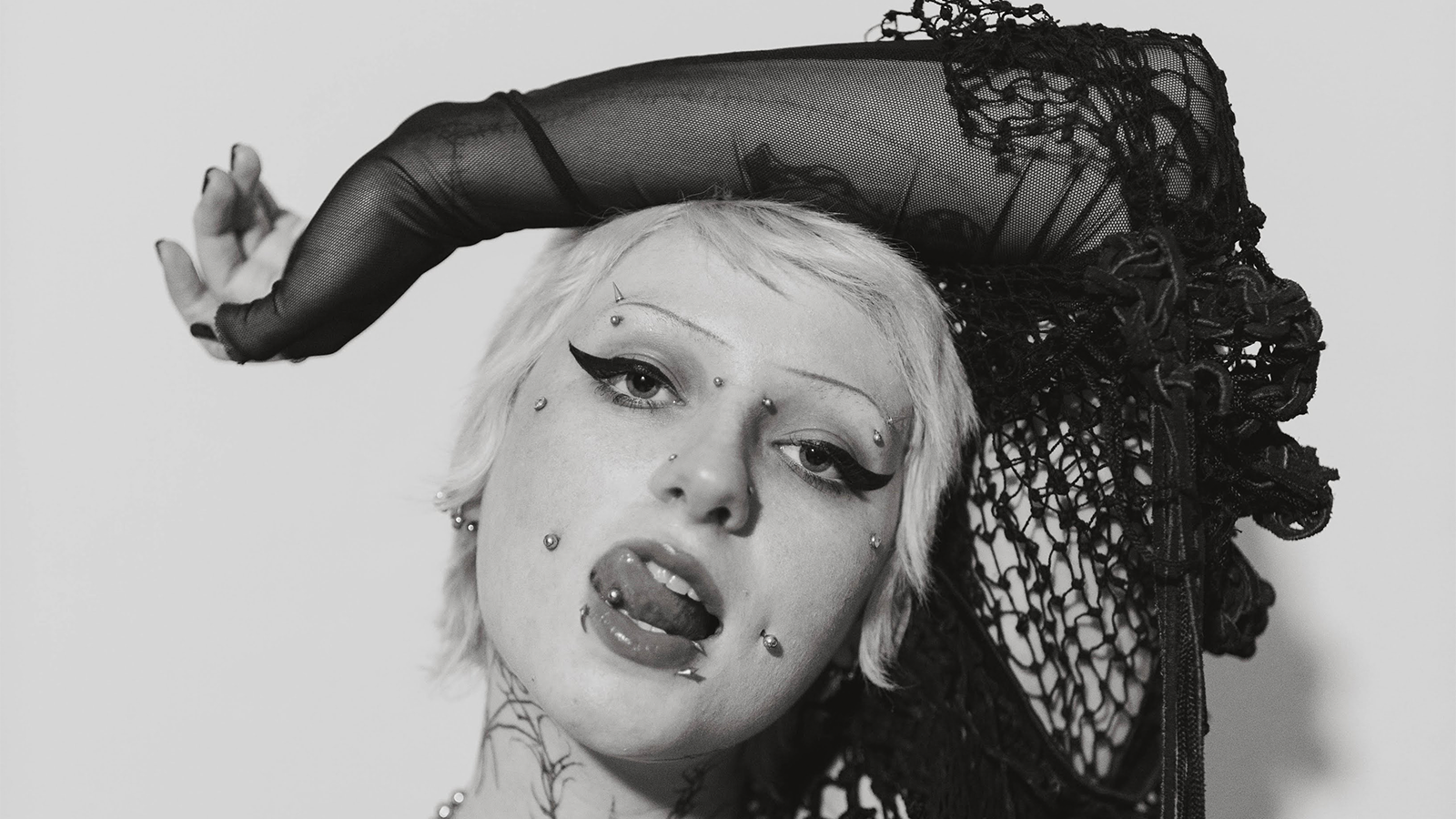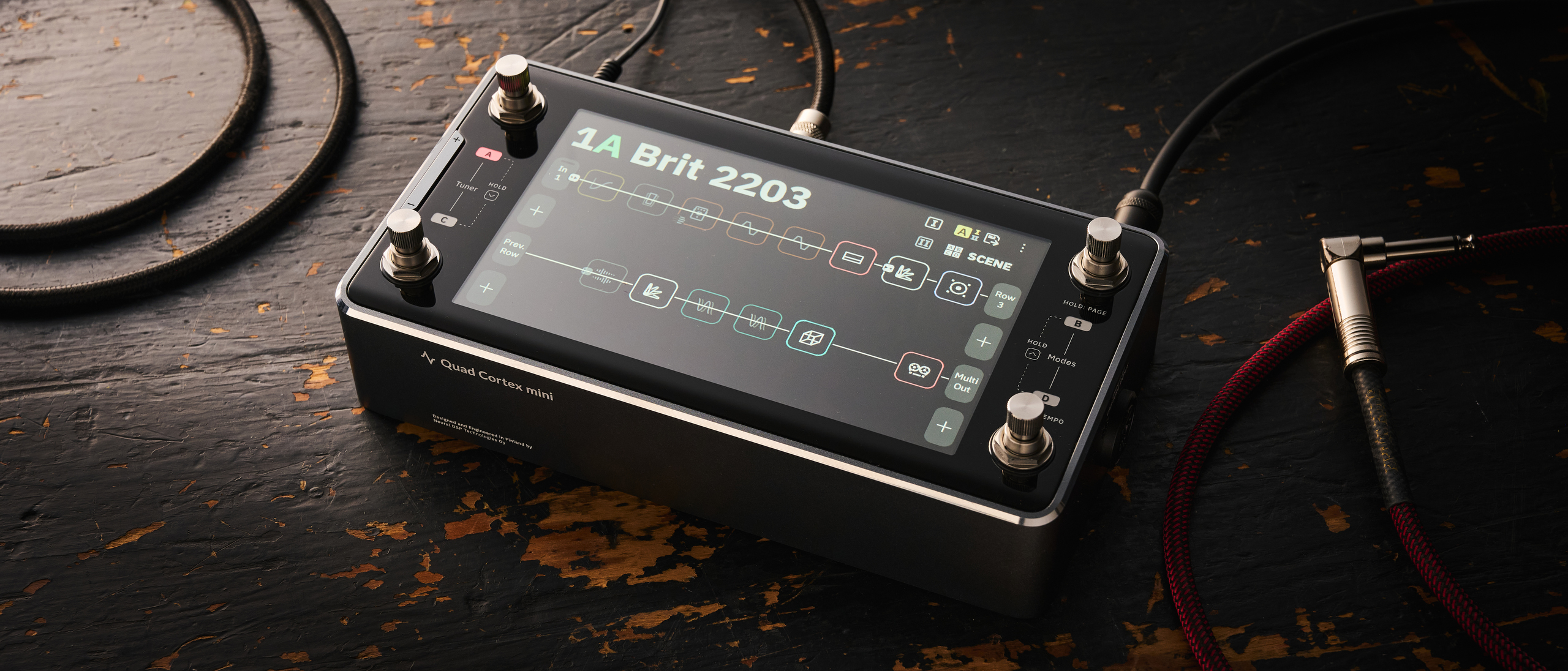Carolesdaughter: “I think my next thing will be a full-length, now that I know what I’m doing”
Ahead of her debut Australian tour, Carolesdaughter welcomes us into her weird and wonderful world

All the latest guitar news, interviews, lessons, reviews, deals and more, direct to your inbox!
You are now subscribed
Your newsletter sign-up was successful
When this issue of Australian Guitar hits shelves, Thea Taylor will be in the country for her first-ever shows on local ground. Just a few years ago, however, she would’ve sworn that the closest she’d ever come to Australia would be in the form of something smuggled out of there illegally. Before making a name for herself as Carolesdaughter, the SoCal-native was a problem child, rebelling against her strait-laced Mormon parents by delving into body mods, hard drugs and perhaps their greatest fear of all, punk-rock.
Taylor’s four-year stint of inter-personal calamity – into which she was thrown at age 13 – saw her dragged in and out of rehab multiple times. Her last trip lasted six months, and thanks in no short part to the acoustic guitar she brought along to keep her company, changed her life forever. In the year and some months since then, she’s become a household name of any pop-punk fan with a TikTok account, and earlier this year released her banging debut EP, Please Put Me In A Medically Induced Coma. She’s clean these these days, but the chaos hasn’t stopped – only now it’s the kind that leaves her cheeks sore from smiling so much.
Before she hopped on the flight down here, Taylor sat down with Australian Guitar to clue us in on her wild journey thus far, and the even wilder journey she has ahead of her.
After the journey you’ve been on to reach this point, how does it feel to finally have this EP out in the world?
This EP is very near and dear to my heart. It’s basically my introduction to who Carolesdaughter is, and I wrote a lot of these songs a really long time ago. It just felt like now was the right time to get them out there – they needed to come out, because I grow really fast as an artist, and I truly believe that my new music is so much better than this EP. But I still feel like these songs are so timeless, and I’m still very proud of the writing. And that’s pretty rare for me, to feel that way about really old music. So I really love it.
How did you want this record to paint the picture of who Carolesdaughter is?
Well, since I wrote it in rehab, it’s super honest and super self-reflective. It’s just me, going into my own head and just like digging deep into what makes me… Me.
Skimming through your SoundCloud, you’ve made a bunch of music in a bunch of styles – how did you end up locking into this half “folky acoustic pop”, half “grungy mall-goth emo” vibe?
Well, another thing about me is that I literally listen to every type of music. I’m talking country, I’m talking rap, I’m talking punk, I’m talking metal – literally every type of music, I have a love and appreciation for. And so as a songwriter, I can’t be confined to one single genre. I just love to like to experiment. I wrote all of the songs on an acoustic guitar, so trying to figure out how to produce them and how I wanted the world to hear them, it was pretty hard. Because the way I’d always heard them was just me in my bedroom, or in my treatment room with four other girls, just acoustic and softly sung. But I was like, “I need to make these all into really big songs.” Some of them, like ‘Cold Bathroom Floor’, I kept acoustic, but all the other ones got really fleshed out.
How did the songs evolve from those lowkey acoustic jams into these full-band bangers?
I think what really helped was the resurgence of the whole pop-punk thing, and people being more receptive to that. Because I’ve always had a love for pop-punk, but everyone else hated it. So I’m glad that people are really f***ing with it now, because I always thought that ‘Please Put Me In A Medically Induced Coma’ should be one of those hard-hitting songs, but I didn’t know how to make it that way.
All the latest guitar news, interviews, lessons, reviews, deals and more, direct to your inbox!
I’d never worked in a studio before, and I’d never worked with a producer, so this EP was like my way of figuring it all out – working with different people and finding out what I liked and didn’t like. I’m super proud of the finished product and I’m super happy with it, but I honestly had no idea it was going to sound like it does until it was made. It was definitely a work in progress, and there was a lot of trial and error with all the songs – but now I feel like I’ve got a really good grasp on how to do it. And I think my next thing will be a full-length, now that I know what I’m doing.
So is this the direction you see all of your music heading in, or do you think you’ll still leap between genres?
No, I think I could never be, like, “I’m done with this style of music for sure.” My roots will always be just playing songs acoustically, but I think for my full-length, there’s gonna be a little more of a hip-hop element. ‘Violent’ had the trap drums and the really heavy 808s, and I want to incorporate that into some new music. I have a new song coming out that’s very reminiscent of the ‘Violent’ era, so I think people will be really happy about that. But I’m not saying that I’m never going to make band music ever again, either – I think I’ll always come back to whatever... I just love doing everything.
What’s your songwriting process like these days?
It still pretty much always starts on the acoustic guitar. Even though the song that’s coming out is very much a beat-driven song, it started on the guitar. It just is easier for me to write on it because I don’t like going into a room and having someone pull up a beat that’s already been made. I can’t write to beats, it’s always better when I feel like I’m the most involved.
Playing songs that you wrote in rehab – songs that are super vulnerable and soul-baring – can it be pretty emotionally taxing, or is it more just cathartic?
Well I was also in musical theatre, and I did some acting stuff when I was younger, so I feel like I get really into it when I’m performing. So it’s like, if I’m singing a sad song, I get sad. Every time I perform ‘Cold Bathroom Floor’, I feel like crying – like even though I don’t feel like I did when I wrote that song anymore. I have definitely gotten a lot better with my mental health and stuff like that, but just playing that song, I’m reminded of how I felt back then – those words came from such an honest place when I wrote them, so whenever I sing them, I can feel the same feelings. And I know that there’s probably someone in the crowd who feels that way – just thinking about that, I get sad.
Does it feel like you’re taking back control of that part of you, turning what was such a dark part of your life into something so gratifying and positive?
Yeah, definitely. It’s crazy to me because I had such a vision when I was in treatment, just being like, “I’m going to play these songs for people! I’m going to play them with a band, and I’m going to perform them in front of people!” And now I’m doing that every night and basically watching my dream come to life. How could anyone ask for more? It’s just crazy! I’ve had a few of the friends I made in rehab actually come out to some shows, and that always means the world to me.

Ellie Robinson is an Australian writer, editor and dog enthusiast with a keen ear for pop-rock and a keen tongue for actual Pop Rocks. Her bylines include music rag staples like NME, BLUNT, Mixdown and, of course, Australian Guitar (where she also serves as Editor-at-Large), but also less expected fare like TV Soap and Snowboarding Australia. Her go-to guitar is a Fender Player Tele, which, controversially, she only picked up after she'd joined the team at Australian Guitar. Before then, Ellie was a keyboardist – thankfully, the AG crew helped her see the light…
